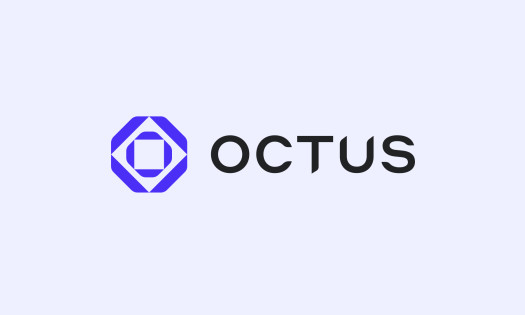Monday, September 01, 2025
Monday, September 01, 2025

by Mark Hannant
“Agile sourcing was one of the keys to our rebrand success. It allowed us to manage a huge scope, scale quickly, and spend wisely,” says Octus VP Corporate Marketing, Drake Manning.
Big corporate events such as a website launch, rebrand or a customer conference put pressure on in-house design and communications resources which tend to be built lean and geared to business-as-usual. They don’t have the spare capacity for a heavy lift. Creative agencies fill the gap to some extent. But because they too run tight ships, they lack the scale to deliver the burst of energy required behind the scenes to produce hundreds, even thousands, of new or redesigned assets to a tight and immovable deadline.
Budget constraints mean neither in-house nor agency teams are built for scale.
Adding offshore resources that can be scaled to meet demand can be the difference between success and failure.
When Octus (formerly Reorg), a global credit intelligence and data business, set about its rebrand, it built a resourcing model that gave it the capacity to deliver an impactful creative solution without compromising its internal stakeholders.
“Agile sourcing was one of the keys to our rebrand success. It allowed us to manage a huge scope, scale quickly, and spend wisely,” says Octus VP Corporate Marketing, Drake Manning.
The business had grown quickly over the previous decade in an industry that has been transformed by technology.
When he joined in January 2024 under CMO, Jeff Winter, Manning’s remit was to manage this major transformation as the business got ready for a repositioning that included a name change and new brand identity.
The primary mission of a strong in-house team, split between New York and London, was to support the sales and marketing functions and the product teams that produce and distribute content to a pool of nearly 40,000 subscribers who consume around 250 articles each day. It’s a well-oiled machine but a rebrand needs different skillsets and the bandwidth to achieve a big volume of work in a short period.
Following pitches from several creative agencies, the team chose Prophet to lead the naming and rebrand work. Prophet is in the business of brand-led growth and innovation, and while it handled some of the activation, Manning saw the benefits of building a partnership approach.
This meant niche agencies working side-by-side to ensure all aspects of the rebrand were handled appropriately and delivered within budget.
magenta, the B2B communications design business I founded in India 15 years ago, was appointed as an execution partner.
No party on its own had the mix of skills or scale to manage this intense and sustained workload. Together they did.
Manning was clear and intentional about roles and responsibilities and the need for collaboration not competition. Prophet conceived a bold and contemporary name and identity and the paraphernalia of a brand book. magenta’s support came in the form of a virtual studio.
This is a scalable model we’ve refined over the years and used to support both agency and enterprise clients whether through one-off projects, seasonal workloads or as an extension to their in-house team. In this instance the virtual studio team included an experienced creative director, one senior and two midweight designers and a copywriter. A Mumbai-based account manager orchestrated the team to meet fluctuating workflows through the six-month pre-launch phase.
A studio in Mumbai adds a whole extra working day to New York (+9.5hrs) and a half day (+4.5hrs) to London so working across time zones maximises studio uptime. It means a studio manager or marketing director arrives in the office to find a large volume of work waiting in their inbox. The output in this case consisted of several hundred assets including web pages, digital forms, brochures, social tiles and newsletters. Some were newly originated, while others were ‘reconditioned’ with the new brand. All were tested in advance of the big reveal. The result was that all assets were in place in time for the big reveal and the day-to-day business of supporting Octus subscribers wasn’t disrupted. Customers had a seamless experience of the new brand.
As well as adding the capacity it needed, Octus enjoyed the compound benefits of variable over fixed costs (what Marketing guru Scott Galloway calls the “gangster move”), lower offshore rates and economies of scale that come from doing large volumes of work.
Says Manning: “The rebrand was a significant priority for the company, and we had a big job on our hands. magenta gave us added capacity and production support that took care of a large portion of the product marketing brand deliverables. So, we met our deadline and did so through careful planning, project management support, and close collaboration with our in-house team and agency partnerships.”
Hybrid models such as this are becoming more common.
Hollywood jettisoned the studio model midway through the last century and moved to a way of working that favored orchestration of talent not ownership of resources.
The pandemic era, when everyone was remote, caused a mindset shift. Many businesses came to realise they could manage distributed workforces and that doing so gave them access to vast new pools of talent at different price points.
By building agile teams that come together to deliver a particular outcome, in-house teams and agencies can better serve the needs of the business. In a time of economic challenge and uncertainty where budgets are shrinking and we’re all being asked to do more with less, outsourcing of creative processes offers many benefits both cost-based and operational.
+++
Mark Hannant is a creative services entrepreneur with 15 years’ experience in the UK India corridor. He is co-located in London and Mumbai. He is the author of ‘Midnight’s Grandchildren: How young Indians are disrupting the world’s largest democracy’ (Routledge 2019). He is a #WeLeadComms honoree.
Written by: Editor
© 2025 Stratpair Ltd., trading as Strategic. Registered in Ireland: 747736